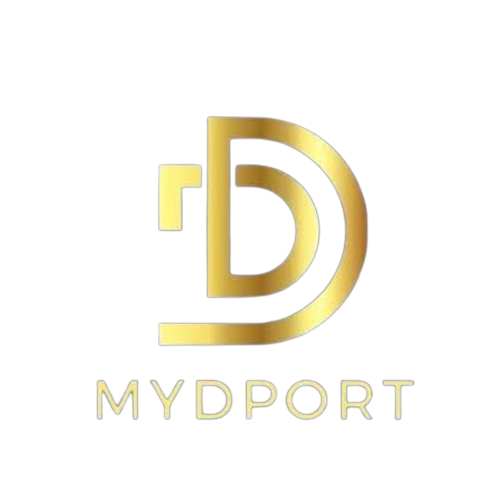2024-2025 Animal Husbandry (ALT A) WAEC Syllabus Expo.
Below is the WAEC syllabus for Animal Husbandry (ALT A) for this year. Please note that this syllabus applies to both internal and external candidates
2024 WAEC Animal Husbandry essay Questions and Answers
(1a)
(PICK ANY FOUR)
(i) Cattle are ruminants with a complex four-chambered stomach (rumen, reticulum, omasum, abomasum), while poultry have a single-chambered stomach.
(ii) Cattle chew their cud and have the ability to ferment fibrous plant materials in the rumen, while poultry lack this capability.
(iii) Cattle have a longer digestive tract compared to poultry, allowing for more efficient digestion of roughage and cellulose.
(iv) Poultry have a crop and a gizzard, which help grind and store food, while cattle do not have these structures.
(v) Cattle rely more on microbial fermentation in the rumen for nutrient absorption, while poultry have a shorter and more simple digestive system.
(vi) The digestive enzymes and pH levels differ between the two species, with cattle being better adapted to digest fibrous plant materials.
(1b)
(PICK ANY FOUR)
(i) Regularly administering effective anthelmintic (dewormers) to eliminate worms.
(ii) Rotating grazing areas, avoiding overstocking, and properly managing manure to break the worm lifecycle.
(iii) Maintaining clean housing, feeders, and waterers to reduce worm transmission.
(iv) Providing a balanced diet and appropriate nutritional supplements to support the animal's immune response.
(v) Introducing natural predators of worms, such as certain nematophagous fungi, to reduce worm populations.
(vi) Selecting animals with genetic resistance or tolerance to worm infections to gradually improve the herd's or flock's resilience.
(1c)
(PICK ANY THREE)
(i) Crossbreeding: Introducing genetic material from high-performing exotic breeds to improve the productivity and adaptability of local breeds.
(ii) Selective breeding: Identifying and selectively breeding the most desirable traits within the local breed population to enhance desirable characteristics.
(iii) Genomic selection: Utilizing genetic markers and genomic information to guide selective breeding programs and accelerate genetic progress.
(iv)Improving management practices: Optimizing feeding, housing, healthcare, and other management factors to support the expression of the local breed's genetic potential.
(1d)
(i) CREEP FEEDING
(PICK ANY THREE)
(i) Increased growth rate and weight gain in young animals
(ii) Improved feed conversion efficiency
(iii) Enhanced immune function and disease resistance
(iv) Earlier weaning and transition to solid feed
(ii) DEHORNING
(PICK ANY THREE)
(i) Reduces the risk of injuries to animals and handlers
(ii) Prevents damage to housing, equipment, and other animals
(iii) Facilitates easier handling and management of the animals
(iv) Helps maintain a more uniform herd or flock appearance
ANIMAL HUSBANDRY
(5b)
(i) Facilitating distribution to diverse markets.
(ii) Providing storage facilities to maintain egg quality.
(iii) Offering transportation services to reach distant markets.
(iv) Assisting in price negotiation between producers and retailers.
(v) Absorbing market risks by buying and selling eggs at stable prices.
(5c)
(i) Anthrax: Bacillus anthracis (affects cattle, sheep, and goats)
(ii) Coccidiosis: Various species of the protozoan parasite Eimeria (affects poultry)
(iii) Aspergillosis: Aspergillus spp. fungi (affects birds, particularly poultry)
(5d)
(i) Genetic differences.
(ii) Environmental factors, such as nutrition and temperature.
(iii) Hormonal regulation.
(iv) Social factors, including dominance hierarchy and social interactions.
Aims and Objectives:
- Basic animal production practices such as feeding, housing, pest and disease control.
- Efficient and effective management of animal enterprises.
- Application of environmentally friendly practices to sustain production.
- Identification of basic problems hindering the improvement of the Animal Industry.
- Efficient processing, preservation, packaging, storage, and marketing of animals and their products.
Scheme of Examination (For candidates in Ghana only):
- Paper 1: 1-hour multiple-choice test with fifty questions, all to be answered within 1 hour for 50 marks.
- Paper 2: 2-hour essay-type test with six questions, candidates required to answer four for 80 marks.
- Paper 3: Practical paper for school candidates or a test of practical paper for private candidates, consisting of four questions to be answered within 2 hours for 60 marks.
Requirements:
- Schools offering Animal Husbandry are expected to raise at least one species of farm animal from each of the following groups:
- Monogastrics (e.g., poultry, pigs, rabbits).
- Ruminants (e.g., goats, sheep, cattle).
- Non-traditional farm animals (e.g., grasscutters, snails).
- Schools are recommended to have agriculture laboratories.
- Candidates should maintain practical notebooks containing records of activities, observations, and specimens collected.
Detailed Animal Husbandry (ALT A) Syllabus:
- Introduction to Animal Husbandry
- Anatomy and Physiology of Farm Animals
- Animal Nutrition
- Animal Health
- Genetic Principles and Animal Improvement
- Introduction to Environmental Physiology
- Monogastric and Domestic Pet Production
- Pig Production
- Dairy Cattle Production
- Range and Pasture Management
- Animal Housing and Structures
- Animal Products and By-products
- Breeds of Farm Animals
Download Complete PDF View Animal Husbandry (ALT A) WAEC Syllabus as Text.
See also: Civic Education WAEC Syllabus 2024
Animal Husbandry (ALT A) WAEC Syllabus Questions and answers Subscription plans:
Subscription for the 2024 WAEC Animal Husbandry (ALT A) Syllabus questions and answers is currently ongoing. Early subscription ensures early treatment and thorough preparation ahead of the exam.
IMPORTANT TIPS:
- For daily and per-subject subscribers, it's recommended to subscribe a day or two before each exam to avoid delays during the exam.
PER PRACTICAL ANSWERS:
- Direct Mobile/SMS: N800 MTN CARD
- WhatsApp PLAN: N700 MTN CARD
- Password/Link: N500 MTN CARD
PER SUBJECT ESSAY & OBJ ANSWERS:
- Direct Mobile/SMS: N800 MTN CARD
- WhatsApp PLAN: N700 MTN CARD
- Password/Link: N500 MTN CARD
- Direct Mobile/SMS: N1500 MTN CARD
- WhatsApp PLAN: N1000 MTN CARD
- Password/Link: N800 MTN CARD
To subscribe, send your MTN PIN, Exam with Subject Name, and Phone number to: 09074969983 via TEXT MESSAGE(SMS) or WHATSAPP ONLY.

%20WAEC%20Syllabus%20.png)